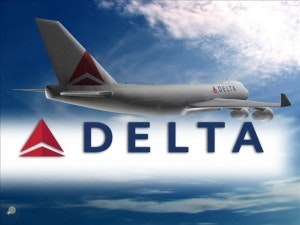Last month, I pointed out a growing trend in the U.S. airline industry toward “upgauging”: replacing smaller planes with larger ones. Virtually every airline has become enamored with the potential cost benefits of switching to larger aircraft. They are almost always more fuel efficient and more labor efficient since they allow the airlines to spread costs over more potential passengers.
From a passenger perspective, the upgauging trend could lead to lower ticket prices if the airlines pass most or all of their cost savings through to customers. This would obviously be a nice benefit for consumers.
However, as the average plane size increases, airlines are likely to maintain capacity discipline by cutting back on the number of flights they offer. Small and medium cities are likely to bear the brunt of this industry shift, as airlines may offer fewer flights on larger planes rather than more frequent service on smaller aircraft. Consumers will be much less pleased with this change.

Unintended consequences?
As I detailed last month, virtually every major U.S. airline is participating in the upgauging trend. Some, like JetBlue Airways Corporation (NASDAQ:JBLU), are expanding their fleets with larger aircraft than they have previously flown. Others, including Alaska Air Group, Inc. (NYSE:ALK) , are retrofitting existing planes to fit more seats onboard. Southwest Airlines Co. (NYSE:LUV) is doing both of these things! Others, like Delta Air Lines, Inc. (NYSE:DAL), are buying larger planes to replace smaller ones that are being removed from service.
However, airlines will not be happy if they find that they need to drop ticket prices in order to fill their (larger) planes. This would jeopardize the return on investment for these aircraft. “Capacity discipline” has become a universal talking point for airline executives, and the industry as a whole has been fairly diligent about matching capacity to demand for the last several years.
There is only one way for airlines to keep overall capacity in check while the number of seats on each plane grows. They will need to cut down on the number of flights offered. While this would offer customers less choice, airlines will be drawn to this option by the need to limit capacity growth.
An example
Memphis is a city that has already been hit hard by this logic. When Delta Air Lines, Inc. (NYSE:DAL) and Northwest merged five years ago, the two offered a combined 238 daily departures from the Memphis hub. Today, that has been cut to just 94 daily departures. While Southwest Airlines Co. (NYSE:LUV) recently announced plans to enter the Memphis market later this year with flights to five destinations, that is a small consolation for Memphis residents.
